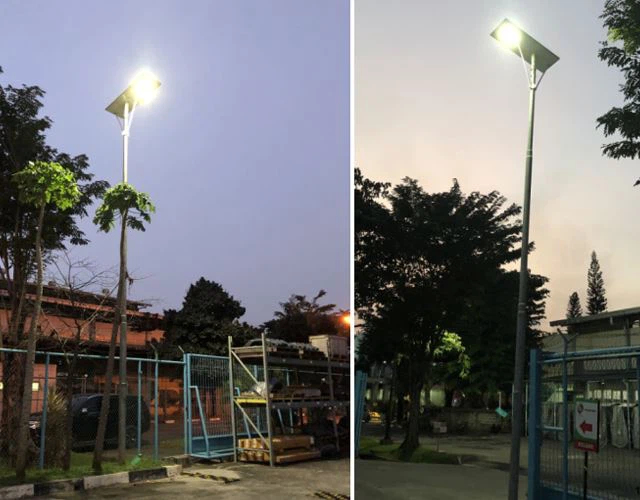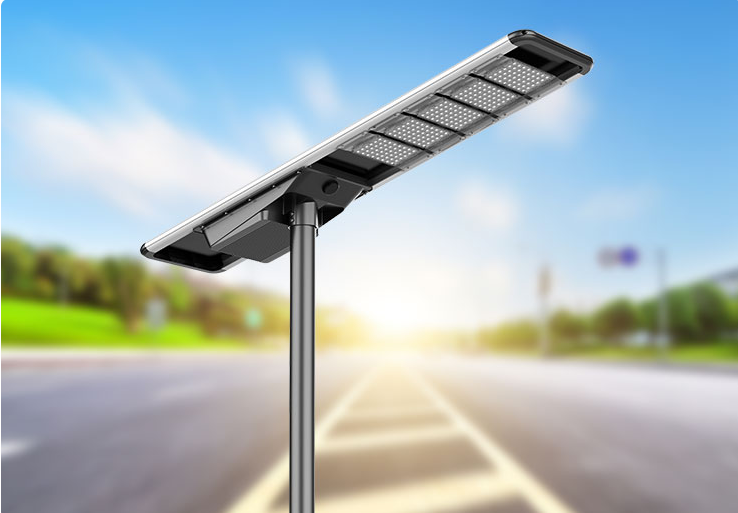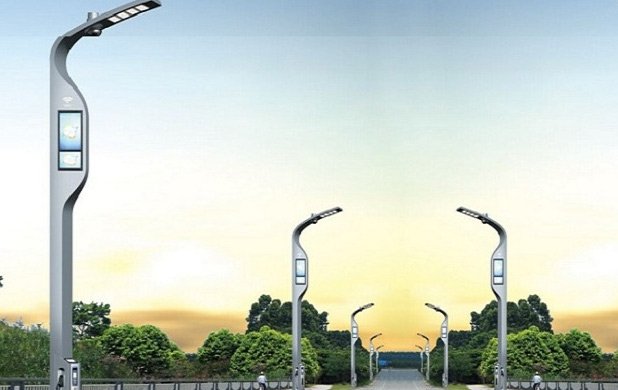Installing street lights shouldn’t mean digging up roads and draining budgets.
All-in-one solar street lights dramatically reduce both upfront and long-term project costs by eliminating trenching, wiring, grid dependence, and high maintenance needs.
Here’s how these systems make smart lighting a smart investment.
No Trenching, Wiring, or Grid Connection Required?
Digging for wires is expensive and disruptive. And transformers? They only add to the bill.
All-in-one solar street lights are self-contained and operate independently of the electrical grid—no trenching, no wiring, and no transformers required.
Why It Saves Big
| Task | Traditional Light | All-in-One Solar |
|---|---|---|
| Trenching | Required | Not needed |
| Wiring | Extensive | None |
| Grid Hookup | Mandatory | Not applicable |
By skipping civil works:
- You avoid costly labor and machinery
- You protect existing infrastructure
- You accelerate installation timelines
Ideal for:
- Urban roads with heavy traffic
- Remote villages with no power grid
- Parks, schools, or pathways
Lower Installation Labor Costs?
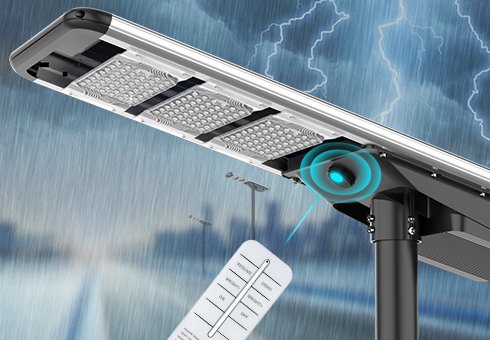
More components mean more hands. But not with solar.
These units are plug-and-play—mount them on a pole, and they’re ready to go.
What Makes It Easy
- No cabling or trenching coordination
- Small teams (even 2–3 workers) can complete installations
- No electricians needed for complex wiring
This cuts:
- Labor wages
- Equipment rental
- Time spent per site
In regions like Northern Uganda or rural Ghana, where labor and equipment access is limited, this becomes a major advantage.
Zero Electricity Bills?
Why pay monthly when the sun is free?
All-in-one solar lights run entirely on solar energy. Once installed, they cost nothing to power.
Long-Term Impact
- $0/month energy cost for 10–12 years
- Immune to utility price hikes
- Ideal for government or donor-funded projects with tight OPEX controls
Public projects love these because they eliminate future budget pressure. And they keep working—even during national blackouts or fuel shortages.
Minimal Maintenance Over Time?
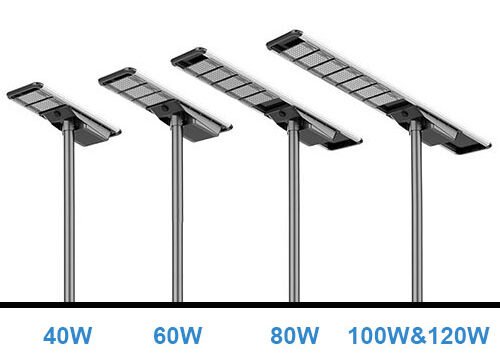
External wiring and moving parts fail fast. Integrated systems don’t.
All-in-one lights are sealed, durable, and come with smart monitoring systems—cutting down your need for regular checks and emergency repairs.
What’s Included
- Waterproof housings (IP65+)
- Long-lasting LiFePO4 batteries
- LEDs with 50,000+ hour lifespans
- Smart controllers for health monitoring
| Component | Traditional Light | All-in-One Solar |
|---|---|---|
| Battery Access | Exposed or buried | Sealed and internal |
| Light Source | Halogen/Fluorescent | Long-life LED |
| Maintenance | High | Minimal |
In the long run, fewer truck rolls = thousands saved.
Quick Project Turnaround = Lower Total Costs?
Projects that drag cost more.
With faster installation and simpler logistics, all-in-one solar lights reduce project timeframes—cutting labor days, rental fees, and site overheads.
Faster Means Cheaper
- Faster commissioning = less standby time for crews
- Fewer delays mean earlier transition to operational phase
- Ideal for tight-deadline projects like:
- Community redevelopment
- Event preparation
- Emergency response deployments
One of my past clients replaced 80 poles across 2km of roadway in under 4 days with a local crew of 4. That kind of speed just isn’t possible with traditional systems.
Scalable and Modular Deployment?
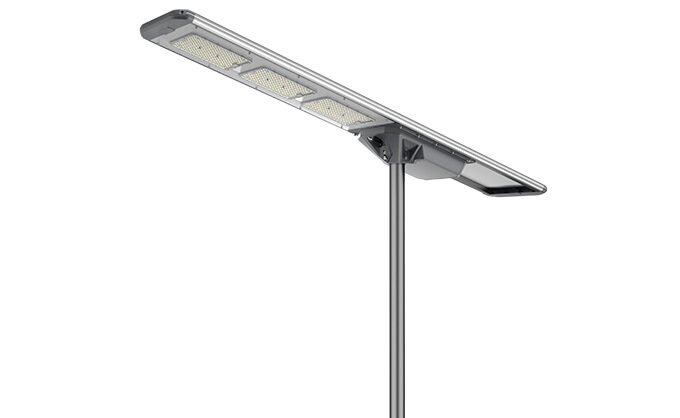
Cities grow. Your lighting system should too.
All-in-one solar lights are modular—add them one by one, zone by zone, without reengineering your entire grid.
How This Saves
- No need for centralized planning or infrastructure redesign
- You can start with 10 units, then expand to 100
- Flexible budgeting over time
Perfect for:
- Expanding residential zones
- Pilot projects in new districts
- Public-private partnership deployments
With smart models, you can even sync new units with existing ones for remote control and monitoring.
Government Incentives and Subsidies?
Green energy is trending—and it comes with money.
Solar lighting projects often qualify for tax breaks, grants, or climate finance incentives.
Examples of Support
- National clean energy grants
- Carbon credit programs
- Municipal renewable energy funding
- NGO and donor funding for off-grid electrification
These reduce:
- Net capital expenditure
- Payback period
- Financial risk for large-scale rollouts
Make sure your proposal includes:
- Emission reductions
- Energy savings
- Maintenance cost models
Governments are more likely to approve funding when you show lifecycle savings.
Lower Total Cost of Ownership (TCO)?
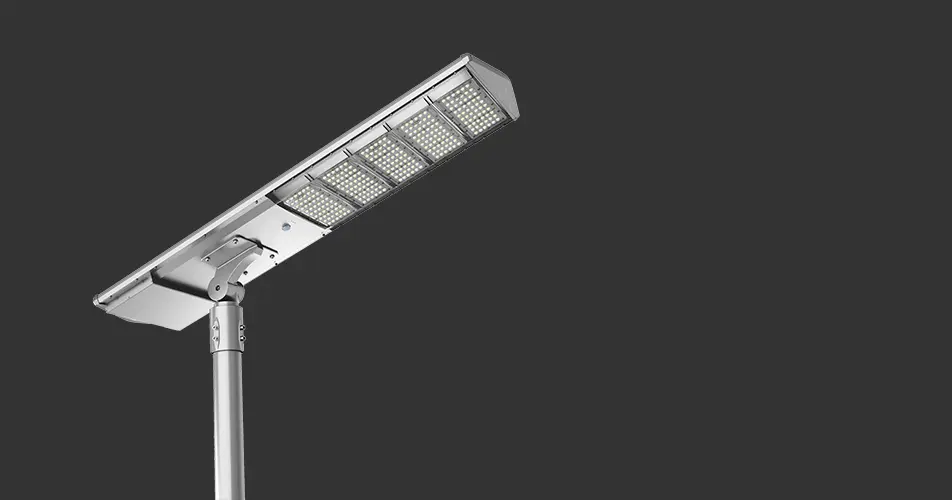
Initial price tags don’t tell the full story.
The true cost of a lighting system includes energy, labor, maintenance, and lifespan—all areas where solar lights outperform.
Traditional vs. Solar: 1km Lighting Project Example
| Cost Category | Traditional System | All-in-One Solar |
|---|---|---|
| Installation Labor | $8,000 | $3,000 |
| Trenching & Wiring | $15,000 | $0 |
| Transformers | $6,000 | $0 |
| Grid Connection | $4,000 | $0 |
| Energy (10 years) | $18,000 | $0 |
| Maintenance (10 yrs) | $5,000 | $1,000 |
| Total | $56,000 | $4,000–6,000 per km |
You save up to 80–90% over 10 years.
Key Drivers of Low TCO
- Zero energy cost
- Fewer component failures
- Shorter setup time
- Lower overhead
That’s not just efficient—it’s smart spending.
Conclusion
All-in-one solar street lights slash project costs at every stage—from installation to operation to maintenance. They offer fast deployment, zero energy bills, and long-term savings that traditional systems simply can’t match.
For any stakeholder balancing budgets, timelines, and sustainability goals, they’re a clear win. Look beyond the sticker price—because the real savings start after installation.


